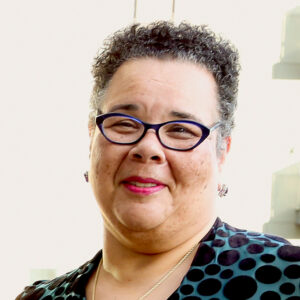
Harness the Power at Your Disposal
Teachers of religion and theology recognize, from preparation and experience, the complexity of teaching fields of study in which students have a personal stake. Students, whether enrolled in courses on religion or theology, often base their engagement in the course with their personal faith, their personal moral codes, their personal ethics, decisions, and behaviors. Even if the course is not intended for this purpose, students signal with their questions and participation, that they are thinking of the course materials through the lens of their own lives. Teachers cannot escape inquiries about events in the news which daily shake and effect lives.
Our classrooms are permeated with questions, concerns, and issues which arise out of that which grips the attention of our nation and the world. In this moment, we are gripped by Covid pandemic/endemic, Monkey Pox infections, Russia’s war in the Ukraine, the prosecution of those involved in the U.S. Capital insurrection on January 6, global economic inflation, major shifts in legislation concerning women’s reproductive health rights, routinized school shootings and failed gun legislation, marriage inequality debates, instances of abusive police power, privatized correction systems, climate change, immigration challenges – to name a few. And, we are aware that a society grappling with these kinds of political, economic, and civic issues are also then challenged by persons suffering with depression, insomnia, increased suicide, grief/loss, effects of domestic violence, increased drug addiction and abuse, exile into the prison industrial complex--to name a few. On any given day, and in any given class session, these issues are at play. Not anticipating conversations around these topics, ignoring the potential for these conversations and/or declaring that these conversations are “inappropriate,” will only serve to further the suspicion that the scholarly discourses of theology and religion are irrelevant, outmoded, and unnecessary.
Our students, in their insistence and persistence, declare to us that we have arrived at an inflection point in world history. What we teach and how we teach in this moment is critical to our survival. The stakes are high for teaching because its practice is one of the most powerful apparatuses of change in any society. What will it mean to harness this power? What will be lost if we do not? For those of us charged with teaching in this moment it is easy to lose sight, given all that is swirling, of our purpose. The aim of educational leadership in this right-now moment is to imagine, design, and build new routes into beauty, health, compassion, citizenry, community and imagination. We must recognize that this moment of chaos and upheaval is also a moment of opportunity. In this moment of seeming impossibility, leaders/teachers must muster the wherewithal to envision a future that is whole, healthy, and just, for all. And then we must build that future, together.
The good news is that we are scholars trained in critical thinking and analysis. We know how to interrogate for the solving of complex problems. Large scale and huge scope problems are our jam! We are faculties of persons capable of thinking toward new visions, dreaming new dreams, and we can learn to relinquish that which no longer sustains us. We know how to disrupt narratives of systemic hatred, systems of injustice, and tear down conditions under which people live one form of debilitating violence or another. Our advocacy matters. The difficult news is that we are unsure if we want to insist upon institutional nimbleness, adaptation, creativity, and empathy. If and how we are nimble as we react to the complex challenges of positive and negative changes will determine our survival. Our ability to adapt to new realities will be key to opening up our future. The ways in which we care for ourselves and others will make a difference in our endurance. We have what we need; and we must not hesitate to empower those who are courageous, those who know how to design for a new future.
So, we ask for persons, colleagues, in and beyond the academy, to reveal themselves for our benefit and learning: Who knows the skills, habits, and practices of redesigning? Who can assist us reconceiving our schools? Who are our best strategists? Who has the know-how for institutional creativity, imagination, and re-building? Who can draw blue-prints for the new and the needed? Who understands nimbleness and can train us? Who adapts well and quickly and can teach us? Who sees that there are multiple realities and can show us? Who can lead us into our hopeful future?
Friends, we must, in dramatic ways, pivot the current educational enterprise that would have us standby silently, passively, and complicitly to a world that would kill needlessly. We need leadership who will cause us to come together, be together, stay together to do whatever we can, to do whatever it takes, as teachers and scholars, to save our shared future. Do not go numb. Do not stop breathing. Do not avert your eyes, lower your head, or go invisible. Do not get used to the death toll reports. Be disturbed. Dare to hope. Be about teaching that is relevant, timely, and attends to the needs of those yearning to live. The power of teaching is at your disposal. Harness it!
Leave a Reply